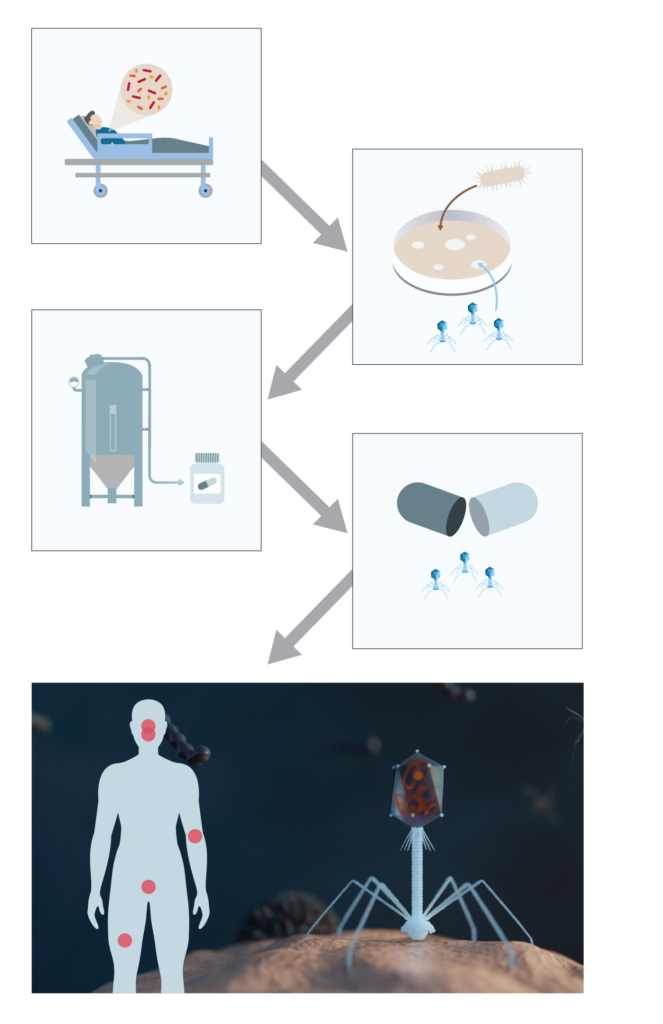Phage Therapy - A personalized medicine
1. Identification of target bacteria:
First, the specific type of bacteria causing the infection is identified through laboratory testing. This helps in selecting the appropriate bacteriophages that can target and infect those particular bacteria.
2. Isolation and preparation of phages:
Bacteriophages are isolated and prepared in a laboratory. This involves collecting and purifying phages from various sources like sewage, water, or other environments where they naturally exist. Phages which specifically infect the selected host bacteria will be enriched and isolated.
3. Production of suitable phages:
Target bacteria are cultured and grown in large quantities using appropriate growth media and conditions. Phages are then propagated using the cultured host bacteria as their growth medium. Phages infect the target bacteria, replicate within them, and eventually cause the host cells to burst, releasing a high titre of new phages. The phage lysate is subsequently purified to remove bacterial debris and other impurities.
4. Formulation and quality control:
The purified phages are formulated into the desired dosage forms, such as liquid suspensions, capsules, or creams, depending on the intended route of administration. Quality control measures ensure the concentration, purity, and potency of the phage preparation meet specific standards and requirements.
5. Administration to the patient:
The prepared phages are then administered to the patient, usually orally, topically, or intravenously, depending on the type and location of the infection. Phages bind/attach to specific receptors on the surface of the target bacteria. They inject their genetic material (DNA or RNA) into the bacterial cell. The newly produced phages cause death (lysis) of the infected bacterial cell. Cell lysis leads to the release of a large number of phage progeny that can then go on to infect and destroy other target bacteria in the vicinity.

However, it is important to note that phage therapy is still considered an experimental treatment in many parts of the world, and further research and clinical trials are needed to establish its safety and effectiveness. Phage therapy is a relatively new and developing field, and several challenges exist. These include the need to identify the most appropriate phages for each infection, potential adverse immune responses, limited understanding of phage interactions with the human body, and regulatory hurdles associated with phage therapy. Rigorous research and clinical trials are essential to address these challenges and establish the safety and efficacy of phage therapy.
Patients interested in phage therapy should consult with healthcare professionals who are involved in ongoing research or clinical trials.
Contact points for patients can be found here.
